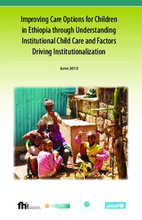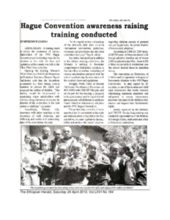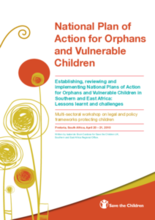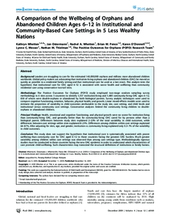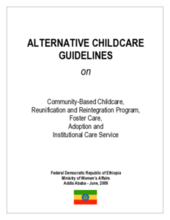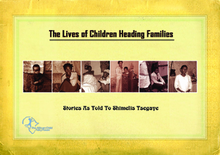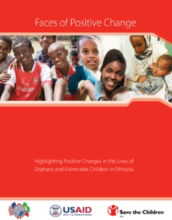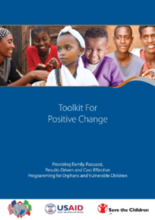childrens_living_arrangement
children_living_without_bio
Displaying 131 - 140 of 157
This paper looks at how social protection is evolving in developing countries and how it relates to the vulnerabilities of children. It goes on to present the different conceptual models for protection and how they have changed and been influenced by the changing definition of poverty and the growth in transnational knowledge and policymaking.
The Chief of Party is responsible for the overall coordination and management of a large USAID/PEPFAR program serving orphans and vulnerable children (OVC).
Findings and recommendations of the first national study of its kind in Ethiopia to study child care institutions, institutionalized children, and factors driving institutionalization.
Ethiopian Womens Affairs Ministry and UNICEF hosted a training for all stakeholders on the 1993 Hague Convention. The training focused on facilitating ways for the adoption of the Hague in line with the laws and regulations of Ethiopia.
This report focuses on the experiences of Save the Children in monitoring, implementing and reviewing NPAs in Angola, Ethiopia, South Africa, Swaziland, Mozambique, Uganda and Zimbabwe. Each of the country offices commissioned the documentation of case studies to identify promising practices and challenges around effective implementation of NPAs.
Global policy makers are advocating that institution-living orphans and abandoned children (OAC) be moved as quickly as possible to a residential family setting and that institutional care be used as a last resort.
This document contains revised alternative care guidelines for Ethiopia. It discusses how development intervention has shifted from a needs based approach to a rights based approach.
Developed while researching child-headed households in five Ethiopian towns and their rural surroundings, this book presents the experiences and stories of individual child household heads.
Highlights successes and lessons learned from the PC3 Program. Serves as a companion piece to the Toolkit for Positive Change
Documents the strategies of The Positive Change: Children, Communities and Care (PC3) Program - a five-year (2004-2009) integrated and comprehensive program designed to provide care and support to more than half a million orphaned and vulnerable children and their families throughout the country of Ethiopia.

